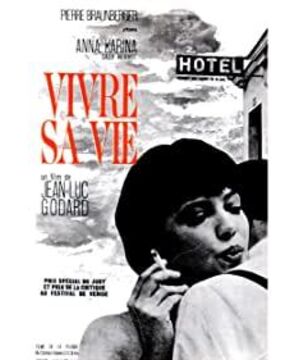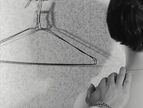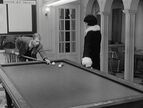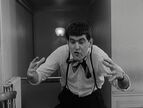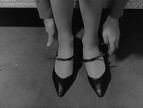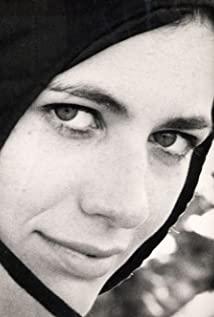TRANSLATION/Cheezus
TM: It seems that the tone of your early films was the joy of making films?
JLG: Yes, I do think so. We were both film critics before we made films, and I loved all kinds of films: Russian, American, Neoreal. It's movies that make us - at least me - want to make movies. Most of my knowledge of life comes from film, and those early works of mine are "film de cinéphile" (film de cinéphile). I would say that at the time I didn't see the connection of things to reality, life or history, only the connection to the film. Now I have gradually abandoned this tendency.
TM: So "Do As You Want" is a new starting point for you, right?
JLG: No, it feels more like an "end point" to me. I think there are two kinds of movies: Flaherty and Eisenstein. That is, one is a reality record and one is a drama, but when it finally reaches the highest level, they become one and there is no difference. What I mean is that through the recording of reality, the movie will form the structure of the drama; through the imagination and fiction of the drama, the movie will reach the reality of life. To prove it, look at the works of the great directors, how they go from reality to drama and back again and again.
TM: You mean, like Renoir?
JLG: Renoir is a prime example, because not only is he doing well at this point, but he can feel it himself. From the neo-realism of Tony, to naturalism, then back to theater, and now to the heights of simplicity in television productions. I think I started out with realism, but now I find that Exhausted is something I shot without realizing it. I thought I knew what the movie was about, but after a year or two I realized I didn't. At first I thought it was a realistic movie, but now it seems to feel like Alice in Wonderland, a completely unreal, surreal world. I feel that starting from "As You Want", I will gradually shoot more realistic and substantial films.
TM: Is that why the film was influenced by Brecht?
JLG: Yes, I've studied quite a few theatrical productions. I wanted to shoot Pirandello's "Six Playmaker Characters", but the rights were too expensive. I wanted to shoot it to show what reality and drama have in common. They have their own boundaries, but at a certain point, they merge.
TM: Truffaut has said that if the public doesn't like one of his films, he considers it a failure. Do you think "A Woman Is a Woman" is a failure? Because it didn't attract many viewers.
JLG: No, I don't think so, because a segment of the audience liked it. You have to remember that Truffaut was half producer, half director - he was a businessman in the morning and an artist in the afternoon, so the public reaction was more important to him. I think the director has to aim to attract as many audiences as possible, but obviously that's a much smaller issue for Freewheel and Paris Belongs to Us than it is for Ben Hur. The director has to be honest and believe that he is making a film for the audience and targeting them. In the early days of my filmmaking, I never asked myself if the audience would understand my film, but now I do. For example, if Hitchcock didn't think audiences could understand his films, he wouldn't make them. At the same time, I also think that the director has to move forward - in a few years, the dawn will come. But, of course, the director has to make sure he knows what his work is about, because if a director just makes a movie and says, "They don't understand, but it doesn't matter," then he's dead wrong and will find that is very important.
TM: I bring this up because the opening scene of As You Like It seems like a bold idea, as if the director acquiesced that it could be misunderstood.
JLG: Maybe. But I think the audience sees something a little out of the ordinary on the screen, and they struggle to understand it. They understand it very well, really, but they want to understand more. If you show them someone is drinking tea or saying goodbye, they immediately say "I understand, but why is he drinking tea?" Audiences don't like "Women Are Women" because they can't understand what it means. But it doesn't make any sense. If you see a bouquet of flowers on the table, does it mean anything? This proves nothing. I just hope this movie will please everyone. I wanted it to be a mixture of contradictory, juxtaposed things without necessarily combining them, a happy and sad movie at the same time. Of course it can't be done - either one way or the other - but I want to do both at the same time.
TM: Do you think editing your films is important?
JLG: For me, there are three periods of time that are equally important when making a film: before, during, and after the actual shooting. Some people, like Hitchcock, have everything calculated from start to finish, so editing isn't that important. "Exhausted" owes a lot to its editing. It is a film with three movements: the first half hour is fast, the second half hour is moderate (moderato), and the last half hour is back to fast and vivace (allegro vivace). I had the idea of doing this before the film started, but it was extremely vague. As You Like It, on the other hand, owes very little to editing, since it consists of a few juxtaposed scenes, and every part of it should be self-evident. What's interesting is that I think the movie looks very well conceived, given how fast I was shooting it, it seemed like I was writing an article without going back to check and correct it. I wanted to make a movie like that, and finish a scene without trying to do it another way, even though there was a reshoot or two. But I feel like I have to figure out what I'm going to shoot right away, shoot it right away, and if the idea is good, the first shot will be good. "As You Like It" is a realistic film, and at the same time it is extremely unrealistic. It's very concise: some bold lines, some basic principles. I was thinking, in a way, in a painter's way, facing the characters head-on, like in Matisse or Braque, so the camera is always erected in front of the actor.
TM: What role does improvisation play in your work?
JLG: Strictly speaking, it is wrong to say that I use improvisation unless I always write at the last minute. I always use written text (to shoot), although it may often be finished two or three minutes before the shoot. In the actor's studio parlance, my actors didn't have any improvisations in "Exhausted", but there were some improvisations in "Women Are Women". Often, lines are written at the last minute, which means the actors don't have time to prepare. I prefer it this way because I'm not as good at directing actors as Renoir or George Cook, and can get actors to rehearse over and over to get a good performance. I like to slowly approach the actor from behind, let him handle his own part of the scene, follow the movements he is fumbling with the character himself, and try to grasp the sudden, unexpected and wonderful moments that happen naturally - just like that, myself Gradually a concept of what I wanted to do was formed. In the case of "As You Like It," the initial idea was to pick up where "Exhausted" left off. Patricia, in Exhausted, is a girl we see from behind, facing us for only a brief moment. So I know "Do As You Want" will start with a girl with her back to us - I can't say why. That was the only idea I had at the time, and I couldn't tell Ana (Karina) much so she would explore without knowing what I wanted, just as I was trying to come up with my vision. We were really improvising because I was constantly changing my mind and deciding to shoot this way and then that way...
TM: Do you have any plans for what you want to do next, and how will you continue to develop as a director?
JLG: In a way, I've had enough. I've made four films in three years, and I'm tired. I want to stop and rest for a while. What worries me is that I find myself no longer thinking in cinema, but I don't know if that's a bad thing or a good thing. When I was shooting Exhausted and the early shorts, a shot of Jane Sebel would be done from a purely "cinematic" angle, making sure her face was exactly at the cinematic angle, etc. Now I just shoot casually without worrying about whether they will be presented in a cinematic way. I really don't know if this is a good thing.
View more about Vivre Sa Vie reviews


